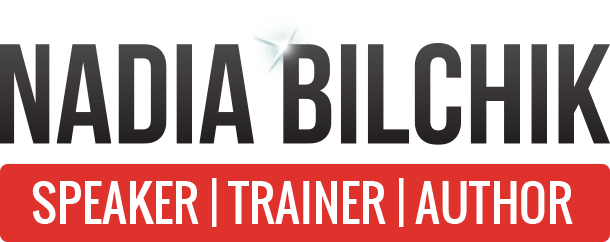Whether you’re giving a presentation in front of a large audience, speaking up in a meeting, or simply trying to interact effectively with your manager, learning to own the podium is a critical skill to possess.
So what exactly does that mean? It’s not about being a flawless public speaker. Rather, it’s about learning to communicate and convey your ideas in a way that projects confidence and authority. You certainly don’t have to be perfect, but mastering these key skills can go a long way toward helping you reach your career goals.
Positive emotional memory database
One of the best antidotes to nerves is developing a positive emotional memory database in your mind. Think of successes from your past – moments when you achieved something, when you were complimented, or when you overcame a difficulty. Being able to easily and quickly call these memories to mind will help you regain your sense of confidence if you’re beginning to feel panicked or nervous.
Ditch perfectionism
Believing that your presentation has to be flawless is a surefire way to sabotage your confidence. Remember, the goal is not perfection, it’s effective communication, connecting with your audience, and constant improvement. Instead of viewing public speaking – or even just giving your opinion in a meeting – as something daunting, shift your attitude and try to see it as an opportunity to improve your communication skills.
Learn to be H-E-A-R-D
According to the popular statistic, many people are supposedly more afraid of public speaking than they are of death. If public speaking is so scary, how do politicians, actors, and other leaders pull it off so well? The answer is, they know how to be H-E-A-R-D:
H – Hook your audience
E – Evidence, get the facts
A – Anecdotes, tell stories
R – Reel in, recap, and relate
D – Delivery skills
What’s in it for me?
The reality is, what your audience members care about most is how they can personally benefit from your presentation. What are you saying that is meaningful, relevant, and helpful to them? Plan to give your audience the “benefit” early. Essentially, you need to answer the most important audience question at the beginning of every presentation. They’re wondering, “What’s in this for me?” and, “Why should I watch/ listen?” Demonstrating that you’re aware of the needs and desires of your audience will help you establish their trust, and that will allow you to truly own your podium.
Reel in
The very best finish is the one that gives the audience something specific to do next. Make your call to action something like “send me an e-mail,” “plan your next steps,” or, “be prepared to go through them here next week.” Like any persuasive presentation, your reel in, or conclusion, is your opportunity to briefly summarize your presentation, recommend action steps and, finally, remind your audience why they will benefit by following your recommendation.
Warm Wishes,



